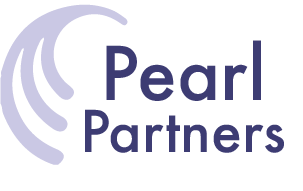The Value of Humanities in Technology
In my last post I talked about how my job waiting tables at a TGI Fridays enabled me to hone the problem finding skills that are more directly relevant to my career than any of the real jobs Ive had. In similar fashion, the courses I took in college that I felt at the time were less directly relevant, in hindsight were the most directly relevant to my career.
My major in college was Packaging Engineering from RIT, heavily science and technology focused. RIT also required a minor concentration in a humanities category. As this was a technically oriented school, most of my friends chose topics such as social issues in technology or something like that. I, on the other hand, chose English Literature. I enjoyed English Literature in high school, and I felt that it provided a nice contrast to keep my mind fresh.
Years later a young designer in my office asked what courses he could get better at conducting consumer interviews. Without hesitation I said, You should take a literature course. One in which you need to critically analyze the work, not just read it and discuss the plot. He thought that was odd, and asked why I didnt suggest a course in market research or statistics. This time I had to think about my answer, and the following example came to mind:
One of the literature courses I took was called The Novel. In this class we analyzed the content for the meaning behind what was written (ie: literally reading between the lines), and also compared how the style and language choices made by the authors helped to convey their intended meaning. After finishing the crisp, quick-reading prose of a Hemingway novel, I was cutting through the flowery, meandering passages of DH Lawrence which typically made me impatient as my mind wandered and I often had to reread it. For me, reading this novel was a dreadful chore.
Cracking the Code
However, one day something caught my attention. I was reading a passage about two people on a beach, with waves moving in and out, written in a rhythmic pattern. I read it aloud to my roommate and asked, Do you think this is a sex scene? She assured me I was nuts, as this writing was way too boring to be any such thing.
However, the next day in class we talked about how it was a sex scene, and how DH Lawrence was a master of working within the constraints that kept him from being explicit about topics deemed inappropriate in the early 1900s. I felt like a detective who had cracked the code, and wondered how many other codes I had carelessly missed, and it changed the way I looked at art and literature forever.
As Ive said many times before, we cant expect consumers to tell us what to do. They can tell us what they are trying to do, and how they are feeling, but we must do the work to crack the code to understand the true meaning behind the behaviors we see and the words we hear. Much like analyzing art and literature, we must always crack the code to understand why a market behaves the way it does.
Embedding the Code
And it doesnt just work in one direction.
DH Lawrence did with language what a good designer does with shape, color, texture, and interaction sequences. He intentionally created the code through which he communicated his intent and embedded it into the work. While I still couldnt point out the specific feature(s) that caused me to understand what he was trying to tell me, the intended message was translated in a very subliminal way. This is why it doesnt work to try to get consumers to be explicit about which features of a product they like better than others. They arent designers (as Im clearly no DH Lawrence), so they shouldnt be expected to know what it is that prompts their response.
Critical analysis of the meaning behind the literal words in an English Literature class was far more directly relevant to learning to understand the implications of consumer research than any market research or statistics course ever would be. Whether intentional or intuitive, someone was able to crack the code that underlies the value of any great product, service, advertisement, or disruptive business plan.



I completely agree! I have heard clinicians talk about the importance of training their eyes for close observation — one MD friend crafted a biology/art history double major in order to hone her skills. I have also heard powerful public speakers talk about how they study dance to learn how to stand, move, and command attention on stage. Cross-disciplinary study is a strategy for life. Thank you for the reminder!
I too agree, Ellen. Yours is a thoughtful and perceptive essay.
You read DH Lawrence expecting lyricism and found sex. I read Lolita expecting sex and found lyricism. I should revisit the books to see if he learned from DH Lawrence.
I’ve often thought that public speakers (and NPR reporters and presenters) should study singing to learn enunciation, phrasing, tempo, and dynamics. How could anyone have heard MLK speaking without perceiving his mastery of these important aspects of oratory?
Thanks Dave! I appreciate your comment and glad you enjoyed the post. It’s nice to know there are others out there who realize that value isn’t only gained from streamlining. More often than not it’s created from the complexity and richness that only a broader perspective can provide. Your examples are a nice illustration of that point.